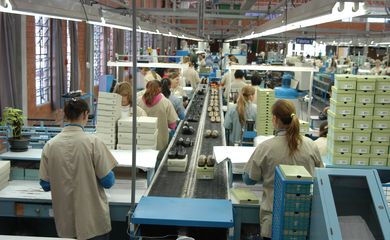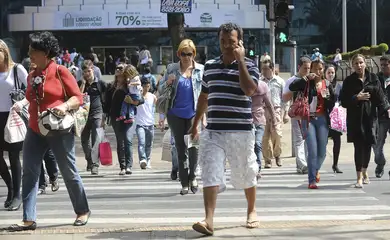Brazil economy minister: Unemployment, inflation “on the wane”

Brazil’s Economy Minister Paulo Guedes talked about the measures taken by the government in its attempt to face the global humanitarian crisis caused by the COVID-19 pandemic and further efforts to restore economic growth. He spoke during an interview to the radio program A Voz do Brasil, aired on Thursday (Sep 15) by public broadcasting company EBC.

Regarding the world economy, the minister said that Europe faces high inflation as the US is coping with inflation and recession, the so-called stagflation.
Minister Guedes pointed out it was said early in the pandemic that the Brazilian economy would sink ten percent, which did not happen. The GDP in 2020 dropped 3.9 percent. “In fact, all advanced countries ended up falling more than Brazil. England fell 9.7 percent; Italy fell 8.7 percent; France, 7.6 percent, Germany, 5.6 percent; Japan, 4.5 percent and Brazil fell 3.9 percent,” said the minister, while advocating what he termed “V-shaped recovery strategy,” which means a sudden and sharp economic decline followed by a steep and equally fast growth.
Current landscape
The minister described the current Brazilian scenario as one of resumed growth, with low inflation and unemployment, adding that "better days lie ahead," with privatizations and concessions to public companies.
Brazil, he argued, has about BRL 900 billion allocated in concessions and privatizations for the coming years, adding that, as a result, the government should have a 2022 marked by a surplus in accounts—revenues surpassing expenses.
Minister Guedes underscored the role of partnerships and concessions that turn the private enterprise into a partner of the government to generate development. Divestments made by Petrobras—the sale of its distribution subsidiary as well as gas pipelines—yielded BRL 260 billion, he said. “We took these companies and sold what was not essential.” Other privatizations or concessions of public companies are guaranteeing the payment of emergency aid to the poorest, said the minister.
Concerning unemployment, Minister Guedes said that Brazil should end 2022 with the lowest unemployment rate in the last 15 years—approximately eight percent. Another historical mark was reached in 2022, he added: For the first time, Brazil has 100 million employed people. “All sectors, across all regions, have created jobs,” he went on to say.
On inflation, Paulo Guedes said that more optimistic economic estimates point to total inflation of 6.5 percent per year in 2022. “Brazil is growing faster and inflation is being revised down. There is already talk of 6.5 percent. For the first time, we will have lower inflation than the US, the UK, and all these [developed] countries. So, Brazilians, be proud!” he said.
Social programs
The Minister of Economy justified the creation of the emergency aid and stressed the need for government intervention in a crisis scenario. The creation of the emergency relief, he said, was a “first line of defense” against the economic impacts that the restriction of activities would cause in the economy, especially in the vulnerable classes and among informal workers.
“The first line was meant to protect the most vulnerable. We anticipated the payment of pensions and bonuses for the elderly, while also creating the emergency aid for 68 million Brazilians.”






